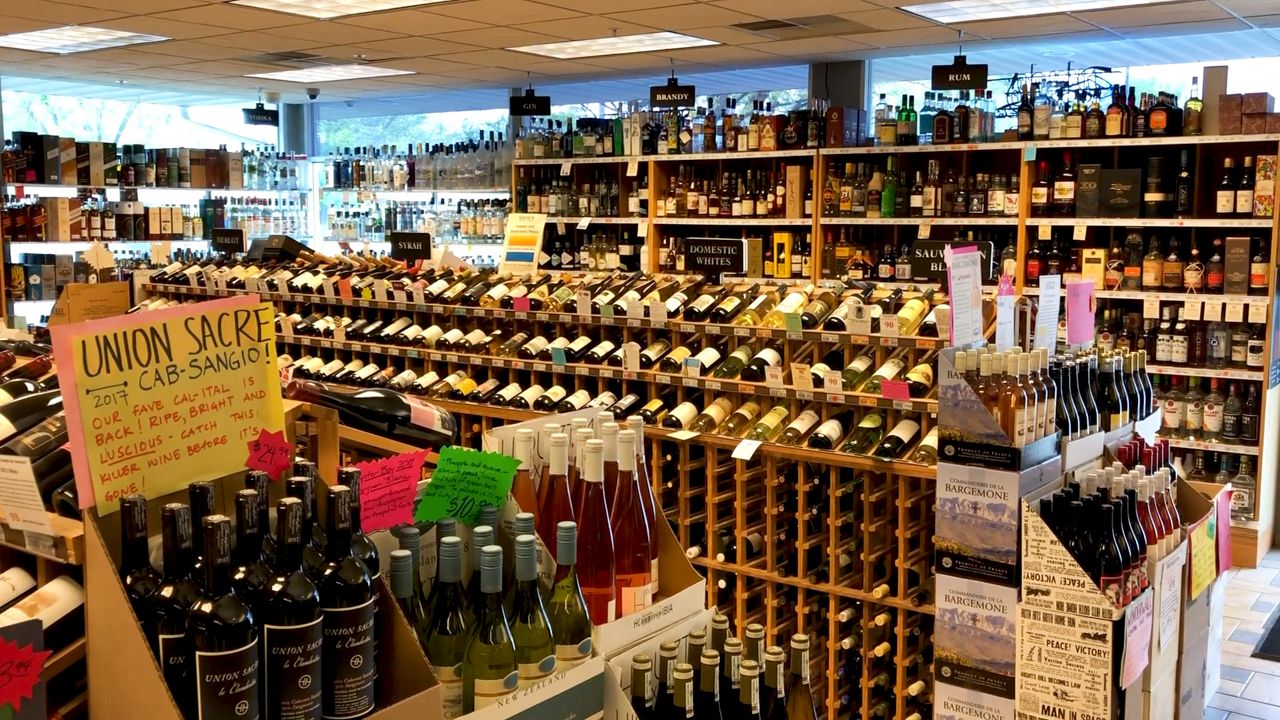What is Question 3 on the general election ballot?
Question 3 will be written on the general ballot as, “Do you approve of a law summarized below, on which no vote was taken by the Senate or the House of Representatives on or before May 3, 2022?”
The proposed law would increase the number of total licenses for the sale of alcohol for off-premises consumption, including licenses for “all alcoholic beverages” and for “wines and malt beverages,” that one person or company can own. Currently, the state limit is nine, and the proposal would gradually increase the limit to reach 18 in 2031.
It would set the maximum number of “all alcoholic beverages” licenses one retailer can own to seven, unless a retailer already owns more than seven such licenses.
The new law would also allow for out-of-state IDs to be used to purchase alcohol and mandate that all alcohol sales must be through face-to-face transactions. There would be changes to the way fines are calculated for violations of the State Liquor Control Act as well.
What does a “yes” vote mean?
Voting “yes” would accept all of the proposed changes in the new law.
Question 3 relates directly to off-premise alcohol retailers such as package stores, gas stations and specialty stores. On premise alcohol retailers such as restaurants and bars will not be impacted by this ballot question.
What does a “no” vote mean?
Voting “no” would make no change in the laws governing the retail sale of alcoholic beverages.
What are supporters saying?
Supporters say Question 3 seeks to stabilize the alcohol sale industry in Massachusetts. There are several bills that have been introduced to the state legislature in recent years that would allow for unlimited or a higher limit of alcohol sales licenses.
Robert Mellion, executive director of the Massachusetts Package Store Association, said Question 3 is a compromise that allows for more licenses but prevents the out-of-state chain stores from dominating the market.
“Based on what has happened with going to nine full licenses, this will be the end of locally owned retail,” Mellion said regarding the possibility of unlimited licenses. “Question 3 will prevent this outcome because the legislature will not likely overturn the will of voters that want their locally owned stores protected.”
Mellion, who wrote the petition to get Question 3 on the ballot, also believes that restriction of alcohol self-checkout purchases is essential to maintaining public safety.
“There is no good argument for self-checkout of a regulated product like alcohol,” Mellion said. “In Massachusetts, you cannot use self-checkout purchase medications, cannot purchase cannabis with self-checkout, cannot purchase cigarettes with self-checkout.”
According to Mellion, allowing for out-of-state licenses would also correct an antiquated technicality since Massachusetts is the only state in the United States that does not accept out-of-state licenses for alcohol sales, yet they are accepted for cannabis sales.
What are opponents saying?
Opponents of the proposed amendment, such as the Retailers Association of Massachusetts, are concerned that passage of Question 3 would lead to lack of competition in the industry.
“It does not seek any reform of existing local restrictions, and thus does not increase competition or expand consumer choice,” the association’s board of directors said in a statement.
There are also concerns about proposed changes to the fine structure of alcohol sales. Currently, alcohol stores that incur a penalty are automatically given a multi-day suspension of alcohol sales. In place of the suspension, retailers can opt to pay a fine that is based on the establishment’s gross total of alcohol sales. Under Question 3, the suspension would be replaced by a fine that does not just include alcohol sales, but the entirety of all goods sold at a store.
“This is discriminatory to food stores and convenience stores and is intended to force them to suspend their alcohol sales rather than pay a far higher fine applied as well to gas and food sales,” the board said in their statement.
How did we get here?
The Question 3 initiative was filed by Mellion and received the required number of signatures to be eligible to be put on the ballot in November 2021. The state certified the petition in December and Question 3 officially qualified in July to be added to the general election ballot.



